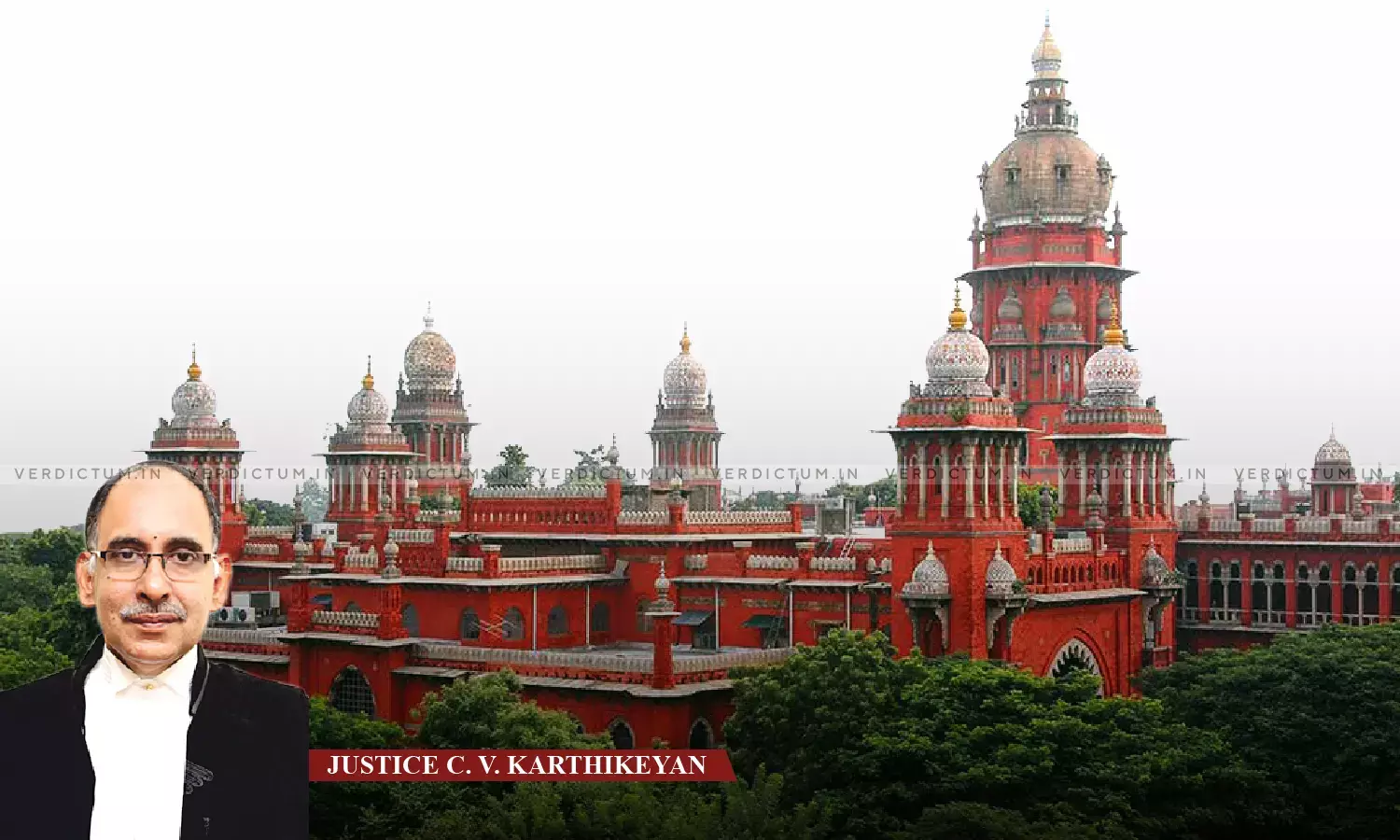Difference Of Opinion On Applicability Of Sec 41(A) CrPC Qua Sec 19 PMLA: Madras HC Directs ED To Produce Body Of Detenu
While considering an issue as to whether on recovery of detenu from hospitalization, custody would be effective from the first day on which actual physical custody of the detenu / husband of the petitioner is handed over to the respondents/ED or it could be termed that the period had naturally lapsed consequent to the run of 15 days from the date of first remand, the Madras High Court listed the matter for the continuation of arguments and directed that Principal Sessions Judge may proceed further on extension of remand on expiry of the existing period of remand which is to expire on July 12, 2023.
A Single Judge Bench of Justice C. V Karthikeyan observed that “there has been a difference of opinion with Justice J. Nisha Banu holding that the 15 days-time would start from the date of first remand while Justice D. Bharatha Chakravarthy very specifically gave a timeline of 10 days for such direction to be given effect and stated that after 10 days, the detenu should be shifted to prison and be treated in the prison hospital and custody to be given after that 10 days and that day should be treated as the first date of custody by the respondent”.
The observation came in reference to a Habeas Corpus Petition filed by Megala, w/o V. Senthil Balaji, seeking a direction against the Respondents (the State, represented by the Deputy Director, Directorate of Enforcement, Chennai) and by the Assistant Director, Directorate of Enforcement also at Chennai, to produce the body of her husband / detenu.
This aspect was with specific reference to the applicability or non-applicability or otherwise of Section 41(A) of the Code of Criminal Procedure qua Section 19 of the PMLA Act. Since the Habeas Corpus Petition involved proceedings against a Minister, it was brought to the knowledge of the Chief Justice, who listed it before a Division Bench which passed an interim order. However, there were differences of opinion between the Division Bench relating to the maintainability of the Habeas Corpus petition, to hold that the Enforcement Directorate is not entrusted with the powers to seek police custody under the Prevention of Money Laundering Act, 2002. Accordingly, the matter stood listed before the present single judge.
Senior Advocate N.R. Elango appeared for the Petitioner, whereas Solicitor General Tushar Mehta appeared for the Respondents.
After considering the submission, the Bench observed that arguments relating to Section 41-A of Cr.P.C., and Section 19 of the PMLA Act would necessarily have to be advanced by both sides since the entire issue also surrounds 'arrest'.
The Bench elucidated that there has been a difference of opinion on the issues of (i) maintainability of the Habeas Corpus Petition, particularly when there has been an order of remand which has been passed by a competent Court, (ii) the very power of respondents herein to seek custody of the detenu / husband of the petitioner herein and (iii) as a corollary to that particular issue since there is a limitation is provided under the Code, whether such custody should be only within 15 days of the initial remand or whether the starting date could be extended since the detenu / husband of the petitioner is now in remand and in hospital taking treatment under directions of the Court.
While adding that whether that period of hospitalization could be excluded is an issue, the Bench stated that if it is answered in the negative then the request for custody would become otiose and not capable of being put into effect.
On the issue as to whether the Enforcement Directorate has the power to seek custody of a person arrested, the High Court found that out of the Division Bench, Justice J. Nisha Banu had come to an opinion that the Enforcement Directorate has no such power; whereas on the other hand, Justice D. Bharatha Chakravarthy had stated that the Enforcement Directorate is vested with such power to seek custody.
Further, on the issue as to whether the Habeas Corpus Petition itself is maintainable after a judicial order of remand is passed by a Court of competent jurisdiction, the High Court noted that Justice J. Nisha Banu opined that the Habeas Corpus Petition was maintainable and had allowed it; whereas opposing the same, Justice D. Bharatha Chakravarthy had stated that a Habeas Corpus Petition would be maintainable only in exceptional cases.
“This point of difference arose because there was a subsequent event which was the order of remand passed by the Principal Sessions Judge, Chennai”, added the Court.
Therefore, given the difference in opinion on the time gap or the starting point custody if at all custody is to be granted and which would depend on the answer to the question as to whether the respondents/ED could seek custody of the person arrested, the High Court concluded that this issue should be addressed, but as a fact-specific issue in this case.
Cause Title: Megala v. State
Click here to read/download the Order




